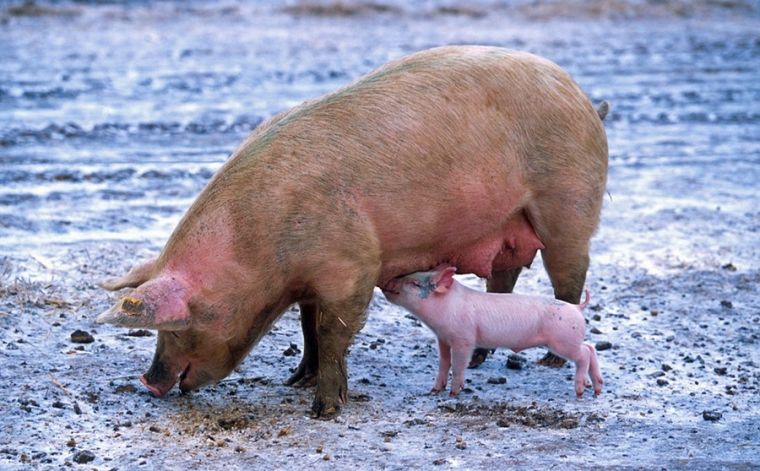Crossing the line: Should scientists create pig-human hybrids?

Your liver or kidney is packing up and you need a new one. How do you get it? Usually when someone whose organs are in reasonably good shape dies of something else and their relatives allow them to be used to save other people's lives. But there aren't enough of these donors and the surgery isn't always successful. Now, though, the huge leaps forward in genetic research look like creating a viable alternative, with the help of pigs.
I know about this. It's about transplanting pig hearts into humans.
It's not quite as simple as that. Research was done for a few years but has always run up against the problem that human and animal tissue is incompatible. Having said that, a baboon with a pig's heart has lived for two years, so scientists are increasingly hopeful. That's not what this story is about, though.
No? What's going on, then?
Scientists in the US are trying to grow human organs inside the pigs, rather than using the pigs' own organs. Put very simply, they think they can create a pig-human hybrid in which a pig has a human heart, or kidneys, or pancreas – at least, human enough to be transplanted without rejection.
Extraordinary. How on earth do they do it?
They remove the bit of DNA from a developing pig embryo that would let it grow, say, a pancreas, then inject human stem cells – which can grow into anything – back into the embryo. The hope is that the human cells will fill the gap in the embryo and create a pancreas, which could then be harvested from the (eventually) aborted pig foetus and used to save a human life.
That sounds – well, I'm not sure what it sounds like. Exciting and troubling.
From the pure research point of view it's certainly exciting, in the sense that doing things no one has ever done before is exciting. However, there are really serious questions about it, both on principle and in practical terms. Practically, there are serious worries about pig viruses colonising the human organ and making the cross-species leap. That's believed to be how the Aids virus got going.
Any other fears?
Several. Critics ask what happens if cells from the 'human' organ start to colonise the pig's brain and make it more human. And animal rights campaigners are understandably unhappy with the whole idea. Animals are already used in research and for meat, but technology like this could end up with a lot more of them being cut about for our benefit.
What about theology? Any wisdom there?
Many Christians would say that there is something sacred about the idea that creatures are made "after their kind", as Genesis says. While they don't have a problem with fixing things that have gone wrong or "restoring the image", they draw the line at creating a "chimera" or mixture of species. Not all Christians would agree, on the other hand; some would say that as long as proper controls are in place, this could be seen as an extension of the healer's art.
If I needed a transplant, I don't think I'd be too worried where it came from.
That's part of the problem; many people see it just as a practical problem, akin to building a bridge or fixing a car. But a pig is a living creature, and it might be argued that we owe other living creatures more respect than to tamper with their DNA – their very identity – in this way.
Fair enough. But we need more organs, don't we?
Yes, but critics of the enterprise point out that there are other ways of increasing the supply of donors, like education and publicity campaigns, and that the effectiveness of transplants is increasing through other groundbreaking technology. For instance, tailor-made organs can be grown using stem cells on a biomaterial scaffold and implanted without the risk of rejection. Also it's been found that organ donation accompanied by bone marrow donation has a far better success rate. Scientists using a special 3D printer have even managed to make a bladder. So things are getting better all the time, without needing to go down the cross-species route.
This makes me think I should sign up to donate.
You can find out more here. And if you want to help someone while you're still alive, you can become a living donor, like the bishop in Kerala who gave his kidney away.
Follow Mark Woods on Twitter: @RevMarkWoods











